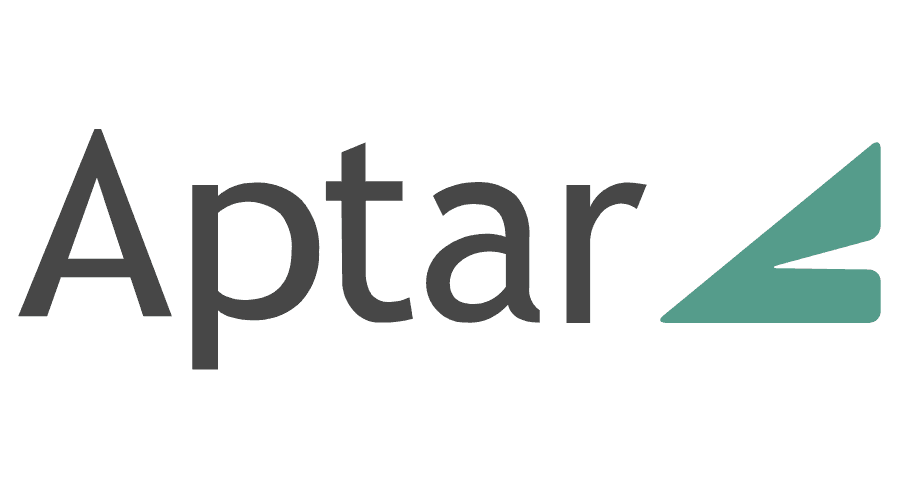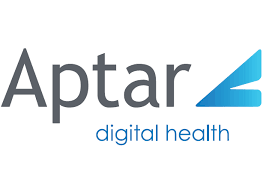
Customized behavioral health for your members
Offer accessible, acceptable and inclusive psychological support to your members
Why health plans choose Iona Mind?
-
Iona Mind are the market leaders in low-intensity cognitive behavioral therapy (CBT) technologies. Low intensity CBT uses health technologies to enable patients to work at their own pace within their own time. This reduces the demands and costs placed upon providers. There are over 30 systematic reviews and 50 controlled trials demonstrating the effectiveness of low-intensity CBT.
-
Iona Mind offers 24 / 7 around the clock support to ensure everyone can get help when they need it. The Iona Care Team are easily accessible from inside any of our products so they’re always just a few taps away.
-
Iona Mind has a structured and proprietary formula for co-developing products for your population. This ensures accessibility, diversity and inclusion are built in and tested from the beginning. The relevant cultural adaptations also enhance acceptability and usability.
Help your members reduce the costs of comorbidities with specialist psychological support
-
Low-intensity cognitive behavioral therapy (CBT) can be particularly beneficial for individuals with diabetes by helping them manage the psychological stress and depression often associated with the condition. Studies have shown that CBT can lead to improved glycemic control and better adherence to medication regimens. For example, a meta-analysis found that psychological interventions, including CBT, resulted in significant reductions in HbA1c levels by approximately 0.29% compared to standard care. This improvement can enhance overall diabetes management and quality of life.
Reduced diabetes distress, health anxiety, alongside increased quality of life, treatment adherence and physical activity (Abbas 2023), alongside diet and monitoring blood and feet condition (Wroe et al, 2018).
-
For patients with kidney disease, low-intensity CBT can help address the anxiety and depression commonly experienced due to the chronic nature of the illness and the demanding treatment regimen. CBT can improve coping strategies and reduce symptoms of depression. Research indicates that CBT can significantly improve mental health outcomes, which, in turn, may lead to better treatment adherence and quality of life for individuals undergoing dialysis or managing chronic kidney disease .
Improved quality of life in haemodialysis patients (NG et al., 2019), and sleep quality, fatigue and inflammatory cytokine levels in peritoneal dialysis patients (Chen et al., 2015).
-
Cancer patients often face significant psychological distress, including anxiety and depression, due to the diagnosis and treatment process. Low-intensity CBT has been shown to effectively reduce these symptoms. A study revealed that cancer patients undergoing CBT experienced a reduction in depressive symptoms and an improvement in their overall psychological well-being . CBT can also assist in managing pain and other physical symptoms associated with cancer treatment, thereby enhancing patients' overall quality of life.
Reductions in symptoms of death anxiety alongside improved life satisfaction and self esteem (Abbas 2022).
-
Hypertension, or high blood pressure, is often exacerbated by stress and anxiety. Low-intensity CBT can help individuals manage these psychological factors, potentially leading to better blood pressure control. Evidence suggests that CBT can lead to significant reductions in both systolic and diastolic blood pressure. For example, a study found that patients who participated in a CBT program experienced an average reduction of 5 mmHg in systolic blood pressure . This can contribute to reducing the risk of cardiovascular events and improving overall cardiovascular health.
Reduce systolic pressure, diastolic pressure and total cholesterol levels (Li et al. 2021)
-
Patients with COPD often suffer from anxiety and depression due to their chronic respiratory symptoms and the impact on their daily lives. Low-intensity CBT can provide these individuals with strategies to manage their anxiety and improve their mental health. Research has demonstrated that CBT can lead to reductions in anxiety and depression, as well as improvements in quality of life for COPD patients . This can also encourage better adherence to treatment plans and enhance physical functioning.
Reduced breathlessness alongside improved quality of life and exercise capacity. (Williams 2020).
-
Long COVID, characterized by persistent symptoms following a COVID-19 infection, often includes fatigue, brain fog, and psychological symptoms such as anxiety and depression. Low-intensity cognitive behavioral therapy (CBT) can be particularly beneficial for managing the mental health aspects of Long COVID. Studies suggest that CBT can help reduce symptoms of anxiety and depression, which are common in Long COVID sufferers. For example, a study reported that CBT led to a significant reduction in anxiety and depressive symptoms, with patients experiencing a 40% improvement in psychological well-being . Additionally, CBT can provide strategies to manage fatigue and cognitive difficulties, improving overall quality of life and aiding in the recovery process for those affected by Long COVID.
Reduced fatigue (Tanja 2023).
-
For individuals with cardiovascular conditions, low-intensity CBT can help manage the psychological stress and depression that often accompany these illnesses. Studies have shown that CBT can improve mental health outcomes, which are closely linked to better cardiovascular health. For instance, a review found that patients who received CBT had a 45% lower risk of cardiac events compared to those who did not receive psychological therapy . This suggests that improving mental health through CBT can have direct benefits on cardiovascular outcomes.
Reduced cardiovascular readmissions whilst improving BMI and physical functioning. (Li 2021).
-
Chronic pain often leads to significant psychological distress, including depression and anxiety. Low-intensity CBT has been shown to be effective in helping individuals cope with chronic pain by altering their pain perception and improving their mental resilience. Research indicates that CBT can lead to a reduction in pain intensity and an improvement in physical functioning. For example, a study found that CBT participants reported a 20% reduction in pain intensity and a 30% improvement in physical functioning compared to those receiving standard care . This can greatly enhance the quality of life for individuals suffering from chronic pain.
Improved physical functioning and pain reduction (Ho, 2022).
Trusted by leading organizations
Evidence-based programs to support the most common behavioral health challenges
Mental health support meets whole-person care
-
Anxiety disorders affect approximately 19.1% of the U.S. adult population each year, making everyday activities and social interactions challenging due to persistent worry and fear. These overwhelming feelings can lead to avoidance behaviors and reduced quality of life. Our low-intensity CBT program can help by providing individuals with tools to manage their anxiety through gradual exposure and cognitive restructuring, thus reducing avoidance and improving daily functioning.
-
Depression impacts about 7.1% of adults in the U.S. annually, leading to prolonged periods of sadness, lack of interest in activities, and significant impairment in daily life, including work and relationships. This can result in a cycle of inactivity and social withdrawal. Low-intensity CBT can assist by helping individuals identify and challenge negative thought patterns and engage in more positive activities, thus alleviating depressive symptoms.
-
Approximately 30% of adults experience insomnia, which can lead to difficulties in concentration, memory issues, and an increased risk of other health problems such as depression and anxiety. Poor sleep negatively affects overall well-being and daily performance. Low-intensity CBT can improve sleep by addressing behaviors and thoughts that disrupt sleep, such as developing better sleep hygiene and managing stress.
-
Low mood, often characterized by persistent sadness and lack of motivation, can affect one's ability to perform everyday tasks and enjoy life. It is a common symptom in various mental health disorders and can lead to social withdrawal and decreased productivity. Low-intensity CBT helps by encouraging engagement in enjoyable activities and cognitive techniques to challenge and change negative thinking patterns.
-
Reduced activity levels can stem from or contribute to mental health issues such as depression and anxiety. It often leads to physical health decline and further emotional distress. Low-intensity CBT can support individuals in setting realistic activity goals, gradually increasing their activity levels, and reinforcing positive behaviors, thus improving both physical and mental health.
-
Unhelpful thoughts, such as negative self-talk and catastrophizing, can perpetuate and exacerbate mental health problems like anxiety and depression. These thoughts can limit one's ability to function and enjoy life. Low-intensity CBT can help individuals identify, challenge, and replace unhelpful thoughts with more balanced and realistic ones, leading to improved mental well-being.
-
Panic disorders affect about 2-3% of people, leading to sudden and intense episodes of fear accompanied by physical symptoms such as heart palpitations and shortness of breath. These attacks can significantly disrupt daily life and lead to avoidance behaviors. Low-intensity CBT can be effective in reducing panic symptoms by teaching techniques for managing physical symptoms, altering panic-inducing thoughts, and gradually confronting feared situations.
Integrates with & enhances your network
Iona is the front door into mental wellbeing. It integrates, rather than duplicates, existing behavioral health benefits.
Iona can guide members to other benefits and resources available through your plan. We customize these pathways for different cohorts and groups that you define.
Integrated into the member journey
Empower members to take control of their mental wellbeing. The Iona Mind platform offers support at every stage of their journey:
Self-Management: Equip members with the skills to manage their own symptoms effectively.
Waitlist support: Provide essential support to members awaiting treatment or other services.
Between Sessions: Ensure continuity of care between therapy sessions.
Post-Therapy or discharge: Help prevent relapse and maintain progress after therapy ends with wellbeing support.
Measure impact & gain insights
Improve NPS and STAR Scores: Elevate your member experience and satisfaction, leading to better NPS and STAR ratings.
Support HEDIS Initiatives: Ensure your plan meets and exceeds healthcare performance benchmarks.
Population Health Insights: Access detailed data and analytics to understand your population's health trends and needs.
Influence the Cost of Care: Reduce overall healthcare costs by preventing more serious health issues.
Address social determinants of health (SDOH) with a trusted partner
Iona Mind solutions are designed to help clients achieve their social determinants of health (SDOH) goals. Whether it’s increasing access, adapting care, or facilitating more affordability, partnering with Iona Mind can support your SDOH strategy.
Cultural adaptation for you members
Culture shapes individual beliefs about mental health, help-seeking behaviors, and coping strategies. We direct attention towards understanding how culture influences experiences of mental health and how we can incorporate this knowledge into our low-intensity programs.
A sustainable alternative
Explore the Iona Mind Platform
Cost-effective and drives outcomes
People with depression are nearly 30% less healthy on average than those without it and use healthcare services more than other commercially insured Americans. This results in more than two times higher overall healthcare spending ($10,673 compared to $4,283). These findings come from the Blue Cross Blue Shield Health index which is built on claims data from 41 million commercially insured Americans.
Only 11% of people are solely diagnosed with depression. 7% have a diagnosis comorbid with another condition, whilst the vast majority experience multi-morbidity, with 82% having two or more additional health conditions.
Iona Mind Development Program
Customized behavioral health products for your population in just 12 weeks
The Iona Mind Development Program for health plans is a structured program of collaboration between Iona Mind and the sponsoring organization to build behavioral health products that meet the needs of its members.
The Iona Mind clinical development team has significant expertise in intervention development, currently leading a range of programs and conducting wider research into a range of areas including carers of people with dementia, end-stage renal failure, parents of children being treated for cancer and the Muslim community.
Trusted by
Built utilizing peer-reviewed psychological research




































